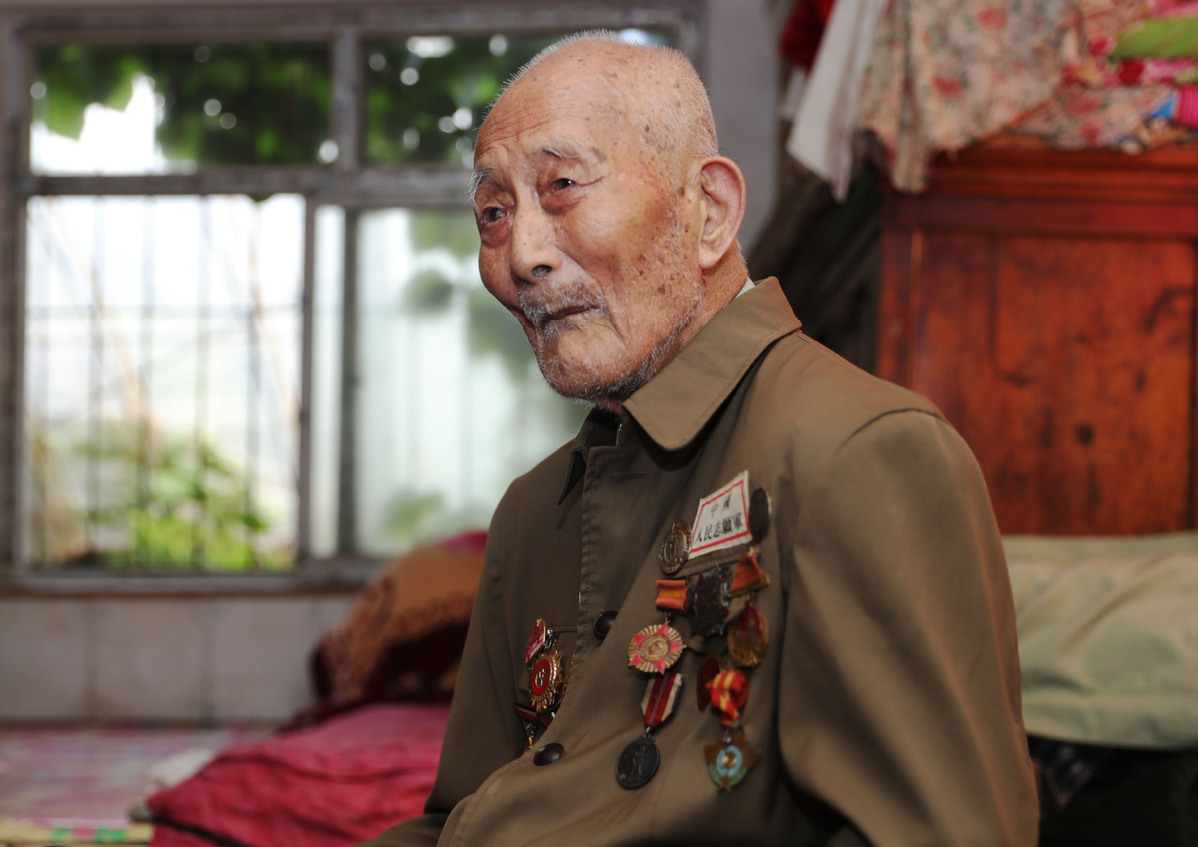Two veterans honored for valiant wartime service
China's top publicity department recently honored two veterans, Sun Jingkun and Xu Zhenming, with the title, "Role Model of Time", for their contributions during the War to Resist US Aggression and Aid Korea (1950-53).
China's top publicity department recently honored two veterans, Sun Jingkun and Xu Zhenming, with the title, "Role Model of Time", for their contributions during the War to Resist US Aggression and Aid Korea (1950-53).
The award came with commemoration of the 70th anniversary of the Chinese People's Volunteers army entering the Democratic People's Republic of Korea to help in the war against US aggression.

Sun, 96, joined the military in 1948 and was demobilized in 1955, returning home in Dandong, northeast China's Liaoning province, with eight military medals and more than 20 scars over his body.
But Sun never talked much about the honors he gained from war.
"I know Sun has served in the military and went to the DPRK, but I only just learned that he had made first-class merits and was a great hero," 86-year-old Liu Zhenfa, who has worked with Sun, told People's Daily.
"My father occasionally talked to me about the war only when I couldn't fall asleep," Sun's eldest daughter, Sun Meili, told People's Daily. She said her father once mentioned his platoon entered a sorghum field and was attacked as bullets and shells dropped from the sky like "rainfall".
"He always had tears in his eyes when he talked about it," she said.
After returning home, the city government had initially planned to arrange for him a position as the director of a factory workshop, but he refused the offer and decided to go back to his rural village to work in local production.
He helped improve and solidify embankment and dam construction, which greatly protected the local land and guaranteed villagers' lives and properties. At a time when there was no mechanized equipment, he carried soil and rocks with his bare hands and shoulders.
"He deeply loves every inch of his land and there was no hardship that he could not bear," Liu said.

Xu, 95, first joined the Eighth Route Army in 1942 and fought in the War of Resistance Against Japanese Aggression (1931-45). During the training of recruits, he learned the story of General Yang Jingyu, a commander-in-chief of the Northeast Anti-Japanese United Army who sacrificed his life two years before. He was deeply touched and vowed to learn from Yang's spirit and defend his homeland.
In a battle in East China's Shandong province, he was hit in the back by a cannonball but insisted on continuing to fight in the war, earning him a first-class merit order. After the war ended in 1945, he participated in the War of Liberation (1945-49) and then the War to Resist US Aggression and Aid Korea.
In 1958, 18 years after General Yang died, Xu retired from the military and made a decision to guard Yang's cemetery, which surprised everyone.
"There are many people across the country who admire General Yang Jingyu. I am guarding his cemetery not only for myself, but also on behalf of my comrades who made the sacrifice. When I stay in the cemetery, I feel like I am still with my comrades," he told Xinhua News Agency.
Over the next few decades, he led staff members to repair the cemetery, plant more trees and collected materials that record the history of the Northeast Anti-Japanese United Army. After he retired, he passed on this job to his son to continue the work.
In 2004, the local government funded the establishment of the memorial hall for the Northeast Anti-Japanese United Army at the cemetery.
As a national patriotism education base, the site now receives more than 100,000 visitors annually. Until a few years ago, Xu still gave revolutionary lessons to students and soldiers and shared moving stories and personal experiences.

